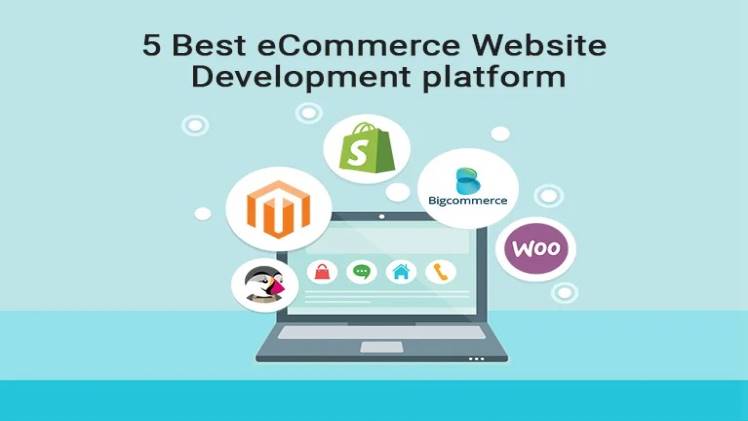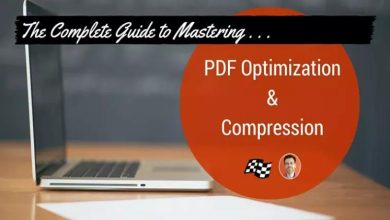E-commerce Website Development: Choosing the Right Platform

Creating an e-commerce website is no small task. From selecting the right platform to making sure you have all the necessary features, there’s a lot to consider. While there are many options out there, it can quickly become overwhelming trying to pick the best one for your project.
For first-time website builders, the two most important aspects to take into consideration when building an e-commerce website are cost and features. WooCommerce and Shopify are two of the most popular platforms when it comes to creating an online store. While they both provide the core features needed to power an e-commerce website, there are a few distinguishing areas to bear in mind.
An e-commerce website needs to be optimized for sales and conversions, and this is where the choice of platform becomes critical. In order to ensure you make the right decision, it’s best to understand the underlying differences between WooCommerce and Shopify and how they will affect your website. In this post, we’ll go over the key elements of both platforms to help you choose the right e-commerce website development platform for you.
Introduction to E-Commerce Website Development
E-commerce website development is the process of creating an online store, allowing online businesses to connect with customers. It involves choosing the right platform, setting up the shopping cart, creating a product catalog, integrating payment systems, and optimizing the website for SEO and performance.
When selecting a platform for your e-commerce website development, take into consideration the features, scalability, security, cost, and support. Once your e-commerce website is ready, you can use various marketing strategies, such as email campaigns and social media advertising, to drive more sales. With the right e-commerce website development, you can create an effective online presence and take your business to new heights.
Popular E-commerce Platforms
Popular e-commerce platforms are a great way to build a successful online business. Whether you are a small business or a large enterprise, these platforms can provide the tools and support you need to make your online venture profitable.
The most popular e-commerce platforms are Shopify, WooCommerce, BigCommerce, Magento, and PrestaShop. Each offers a variety of features to help you create a successful e-commerce website.
Shopify is one of the most popular platforms for e-commerce website development. It’s easy to use and comes with a wide range of features, including payment gateways, social media integrations, and analytics. Shopify also offers a variety of plugins to customize your e-commerce website and increase your sales.
WooCommerce is another popular e-commerce platform for website development. Its main feature is that it is built on the WordPress platform, making it easy to customize and extend. WooCommerce web design is a great choice as it also supports a wide range of payment gateways, including PayPal and Stripe.
BigCommerce is an enterprise-level e-commerce platform that offers great scalability and flexibility. It also offers a wide range of features and integrations, including marketing tools and analytics. BigCommerce also allows you to easily integrate your website with other services, such as shipping and order tracking.
Magento is a popular e-commerce platform that offers a wide range of features and tools. It allows you to customize your store and website with a variety of themes and plugins. Magento also provides great scalability and flexibility and supports a wide range of payment gateways.
PrestaShop is a powerful e-commerce platform that is ideal for small to medium-sized businesses. It offers a wide range of features, including analytics and marketing tools. PrestaShop also supports a variety of payment gateways, such as PayPal and Stripe.
When choosing the right e-commerce platform for your website, it is important to consider the features and tools it offers. Each platform is unique, so it is important to research and evaluate the features and tools each one offers to determine which is best suited for your e-commerce website development.
Tips for Choosing the Right E-commerce Platform
When it comes to e-commerce website development, choosing the right platform is essential. Selecting the right platform can make or break your online business as it can determine how successful your e-commerce website will be. Here are some tips for choosing the right e-commerce platform for your business.
- First, consider the scalability of the platform. Make sure the platform you choose will be able to handle the growth of your store. Check if the platform can handle an increase in traffic and an increase in products.
- Second, consider the customization options. How much control do you have over the design and functionality of your store? Will you be able to customize the look and feel of your store or will you be limited to the templates provided?
- Third, consider the integration options. Make sure your platform integrates with the payment gateways, shipping providers, and other services you need to run your store.
- Fourth, consider the performance of the platform. How fast will your store load? Is the platform optimized for mobile devices? Will customers have an easy time navigating your store?
- Finally, consider the cost of the platform. Make sure the platform is affordable and within your budget. Also, consider the hidden costs such as hosting, transaction fees, and other fees associated with the platform.
Choosing the right platform for your e-commerce website development is essential to the success of your online business. Consider these tips when selecting the platform that’s right for you.
Strategies for Optimizing Your E-Commerce Site
Making sure that your e-commerce website is optimized for success is essential for any online business. There are several key strategies that you can use to maximize the performance of your e-commerce site.
First, you need to choose the right platform. It is important to select a platform that is reliable, easy to use, and offers features that will benefit your business. Popular e-commerce platforms such as Magento, Shopify, and WooCommerce have different levels of features, so it is important to research these options and find the one that best fits your needs.
WooCommerce provides a plethora of SEO plugins that can help with optimizing your e-commerce website. By incorporating Shopify or WooCommerce SEO services, you can ensure that your website will be more visible in search engine results. This can be accomplished by crafting content that contains targeted keywords, using tools such as meta tags, titles, and descriptions, and optimizing videos, images, and other media that are featured on your website. All of these efforts will ultimately help to improve your site’s rankings in search engine results.
Third, you should take advantage of social media to reach larger audiences. Utilizing sites like Facebook, Twitter, and Instagram can help expand your reach and boost engagement. Creating a social media presence also provides an opportunity to interact with customers and gain valuable insights into their needs and preferences.
Fourth, you should work to improve the user experience on your site. This includes optimizing the layout, making navigation simple and easy to use, and providing helpful search features. You should also focus on providing customers with high-quality content, such as product descriptions, reviews, and customer service information.
Finally, you should make sure that your website is secure. SSL certificates and other security measures are essential for protecting your customers’ personal information and ensuring that they feel safe while making purchases online.
By following these strategies, you can ensure that your e-commerce website is optimized for success. With the right platform, SEO tools, social media presence, user experience enhancements, and secure payment processing, you can build a thriving e-commerce business.
Conclusion
In conclusion, choosing the right e-commerce website platform for your business is an important decision that must be made with research and due diligence. Factors such as company size, budget, product range, and customer preferences must be taken into consideration before making the final choice. By taking the time to understand the advantages and disadvantages of the various e-commerce website platforms, businesses can make the right decision to ensure their website meets their requirements and supports their growth.




